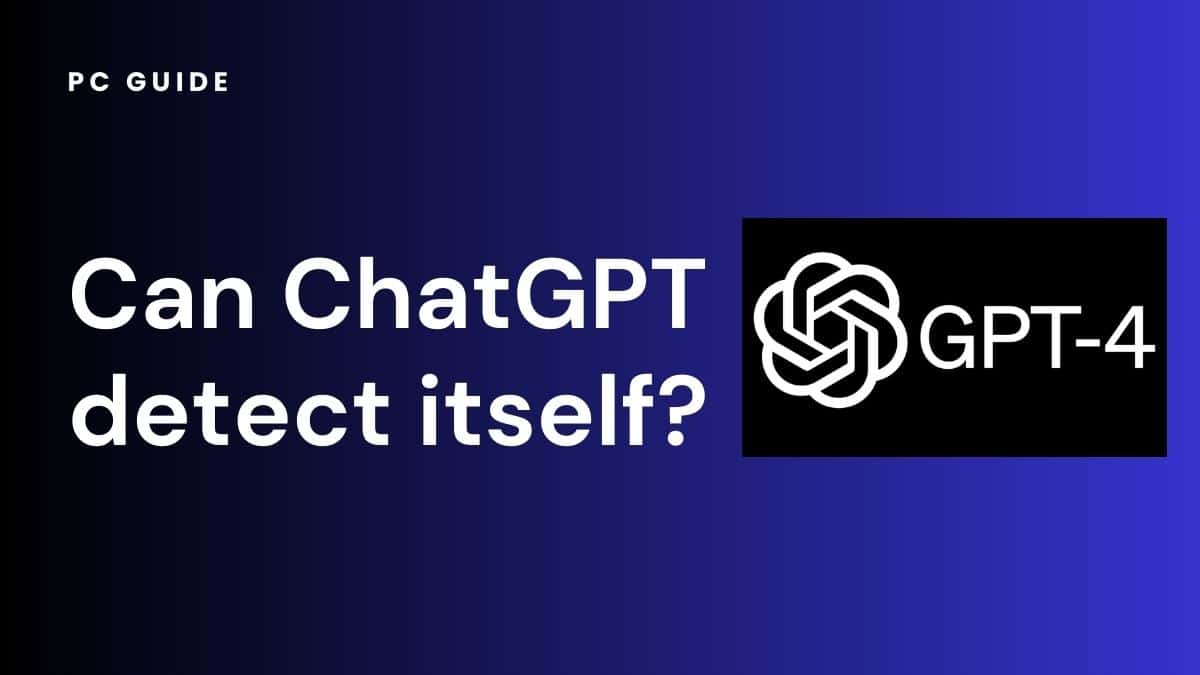Can ChatGPT detect itself?

Table of Contents
Can ChatGPT detect itself? This is a major question being brought into the tech world, as AI chatbots become ever more advanced.
ChatGPT is an advanced language model that understands and responds to text-based queries. The chatbot can generate human-sounding responses to written prompts. But can it detect work written by itself?
Let’s find out!
Essential AI Tools
Can ChatGPT Detect Itself? Introduction
ChatGPT is an natural language processing AI model developed by OpenAI. It can understand and generate human-like text responses based on its input. You can interact with ChatGPT by asking questions or providing prompts, and it will generate a relevant response. These generated texts can range from long-form essays, blog posts and newsletters to short texts like FAQs, jokes or product descriptions.
ChatGPT uses a complex network of algorithms and data to analyze and understand the text it receives. It breaks down the input, identifies patterns, and generates an appropriate response. It learns from vast data to improve its performance over time through machine learning. This makes it a great AI tool for help with various assignments.
The Self-Detection Challenge
Detecting oneself is a complex task, even for humans. For ChatGPT, it becomes even more challenging. Since it relies on input from users, it may not be able to recognize its existence or analyze its functioning. This is especially true as the bot has become so adept at mimicking human speech that an input generated by itself may appear the same as one generated by a human.
The Limitations of Self-Detection
ChatGPT has limitations when it comes to self-detection. Its primary purpose is to generate human-like responses based on the input it receives. Currently, it does not have the definite ability to make any judgement about the origin of a text. It lacks self-awareness and cannot analyze its programming or algorithm.
The Role of User Feedback
User feedback plays a crucial role in improving ChatGPT’s performance. Users can provide feedback on the accuracy and relevance of their AI-generated text responses. By collecting feedback, OpenAI can adjust to enhance the model’s capabilities. However, at the moment, this does not point towards a specific detection tool within the chatbot’s operating system.
Potential for Future Development
While ChatGPT may not be able to detect itself currently, future developments could change this. As artificial intelligence technology advances, there may be opportunities to incorporate self-detection capabilities into models like ChatGPT. This could enable the model to analyze its functioning and improve its performance.
Ethical Considerations
The concept of self-detection raises ethical questions. Should AI models like ChatGPT have self-awareness? What are the implications of developing AI with self-detection capabilities? These questions require careful consideration and discussion within the AI community.
Furthermore, as more school and college students employ the use of ChatGPT to assist in exams or writing essays, questions about cheating are raised. Although there are some ChatGPT detection tools to detect cheating, these aren’t always effective and can throw up false positives or negatives. If the chatbot could discern AI-generated content from genuine human-written text, this could limit the use of AI for breaches of academic integrity.
Can ChatGPT Detect Itself? FAQs
Will ChatGPT ever be able to develop self-awareness?
There are no current publicizied plans to develop self-awareness in ChatGPT or similar AI models. The primary objective is to improve its performance in generating accurate and relevant responses based on user input.
Can ChatGPT Detect Itself? Conclusion
Currently, ChatGPT cannot detect itself. It operates based on the input it receives from users. However, as AI technology progresses, the possibility of incorporating self-detection capabilities into models like ChatGPT may arise. It is essential to continue exploring and discussing the ethical implications of self-aware AI.
